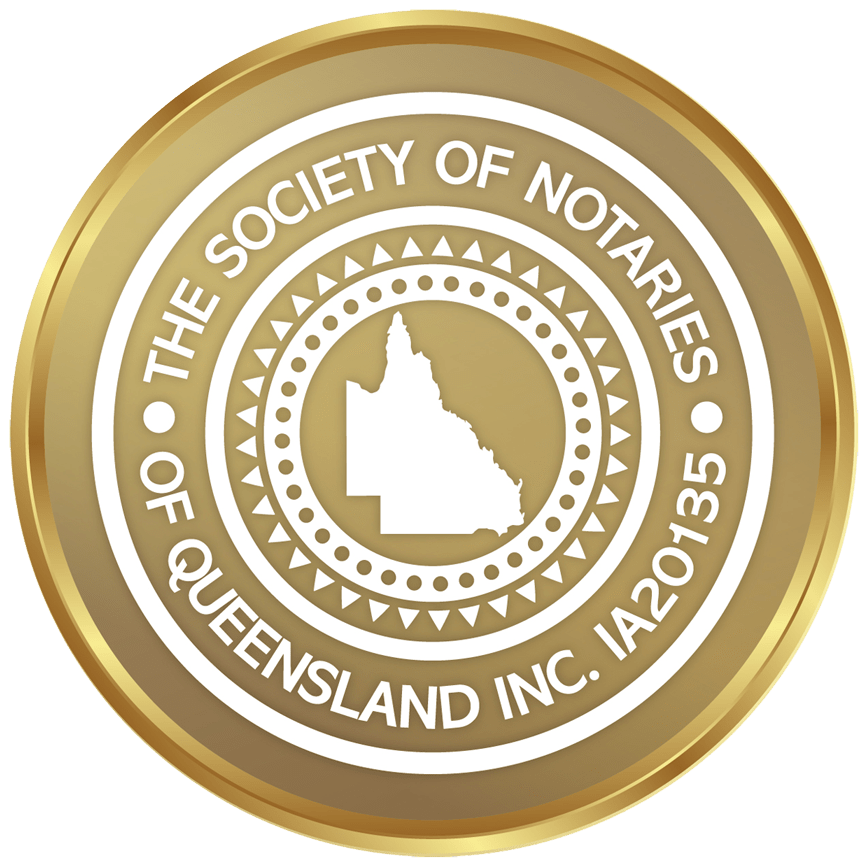Apply to become a Notary Public in Queensland.
What is a Notary Public?
A Notary Public is a Lawyer entitled and authorised to validate and certify international legal matters and documents for use in overseas jurisdictions.
The office of Notary Public is steeped in history and recognition and dates back to the days of the ancient Roman Empire. In the Middle Ages (1279 AD) the practices of authentication of international documents was adopted by the Pope. Henry VIII appointed the Archbishop of Canterbury to designate Notaries to undertake the task.
Today, the act of notarising documents is endorsed by all signatories to the Hague Convention.
Queensland is the only State within Australia in which the appointment of a Notary Public is still made by the Archbishop of Canterbury through The Court of Faculties in London.
Initial Qualifying Requirements to be a Notary Public in Queensland.
To be appointed as a Notary, an applicant must at the time of their application:
- Be a fit and proper person to be awarded a Notarial Faculty.
- Be a solicitor registered on the Roll of Solicitors of the Supreme Court of Queensland and remains on same.
- Be a solicitor currently practising in Queensland and have at least 10 years post admission experience as a solicitor whether in Queensland or elsewhere.
- Be a partner in a firm of solicitors, or a sole practitioner or an integrated legal practitioner.
- Hold a current unrestricted Principal’s practicing certificate.
- Provide evidence of a genuine need for there to be an appointment of a Notary Public in the geographical area in which the applicant intends to practice.
- Successfully completed the educational program as set out and endorsed by the Society of Notaries of Queensland.
- Have their application endorsed by the Council of the Society of Notaries of Queensland.


The Process & Council’s Decision.
Appointments are made through The Court of Faculties in London with the assistance of and endorsement by the Society of Notaries of Queensland (the Society).
Assuming the Initial Qualifying Requirements are met, the Applicant is requested to contact the Society on the form provided following or contact the Membership Officer by email at membership@societyofnotariesqld.org.au expressing interest and advising that Initial Qualifying Requirements have been met following which the Society’s Membership Officer will liaise direct with the Applicant regarding ongoing processes and requirements.
The Society actively encourages and will administratively assist where possible regarding all enquiries and applications.
Applications are accepted on the understanding and acknowledgment that whilst the Society’s Council will so encourage and assist an applicant, it is not obliged to enter into make comment regarding the success or otherwise of any application and at all times Council retains a discretion to defer, approve, conditionally approve, or deny any application.
Fees and costs when applying.
When applying, amounts may vary depending on circumstances. To ascertain details of current fees and costs, please email the Membership Officer.
The application fee essentially covers:
- The costs of the application process with the Society.
- If the Council supports the application, assistance with the preparation of the memorial documents to be sent to the Court of Faculties in London.
- If appointed, registration of the applicant’s seal and signature in the Society’s Register and with the Department of Foreign Affairs and Trade.
- If appointed, membership of the Society including the subscription for the first year up to 30 September of the year of appointment.
Awarding the Faculty.
Providing all documents are to the Court of Faculties’ satisfaction and there is no objection to the appointment, it is usual for the Court to make the award within a few weeks of the filing of the documents.
The Court arranges to have the Faculty engrossed on vellum and it is forwarded to the applicant with a form of oath of loyalty to The Monarch which must be sworn before either a Judge of the Supreme Court of Queensland or the District Court of Queensland or an Anglican Bishop as the Archbishop’s delegates.
The completed oath is then returned by the applicant to the Court of Faculties where the applicant is enrolled in the records of the Court.
The applicant is then qualified to practice for life as a Notary Public for the State of Queensland.
Please be aware that the final decision regarding issuing a notarial Faculty rests with the Court of Faculties.
Contact the Society.
The Society of Notaries of Queensland
Email: membership@societyofnotariesqld.org.au
Or send a message via the following contact form.

